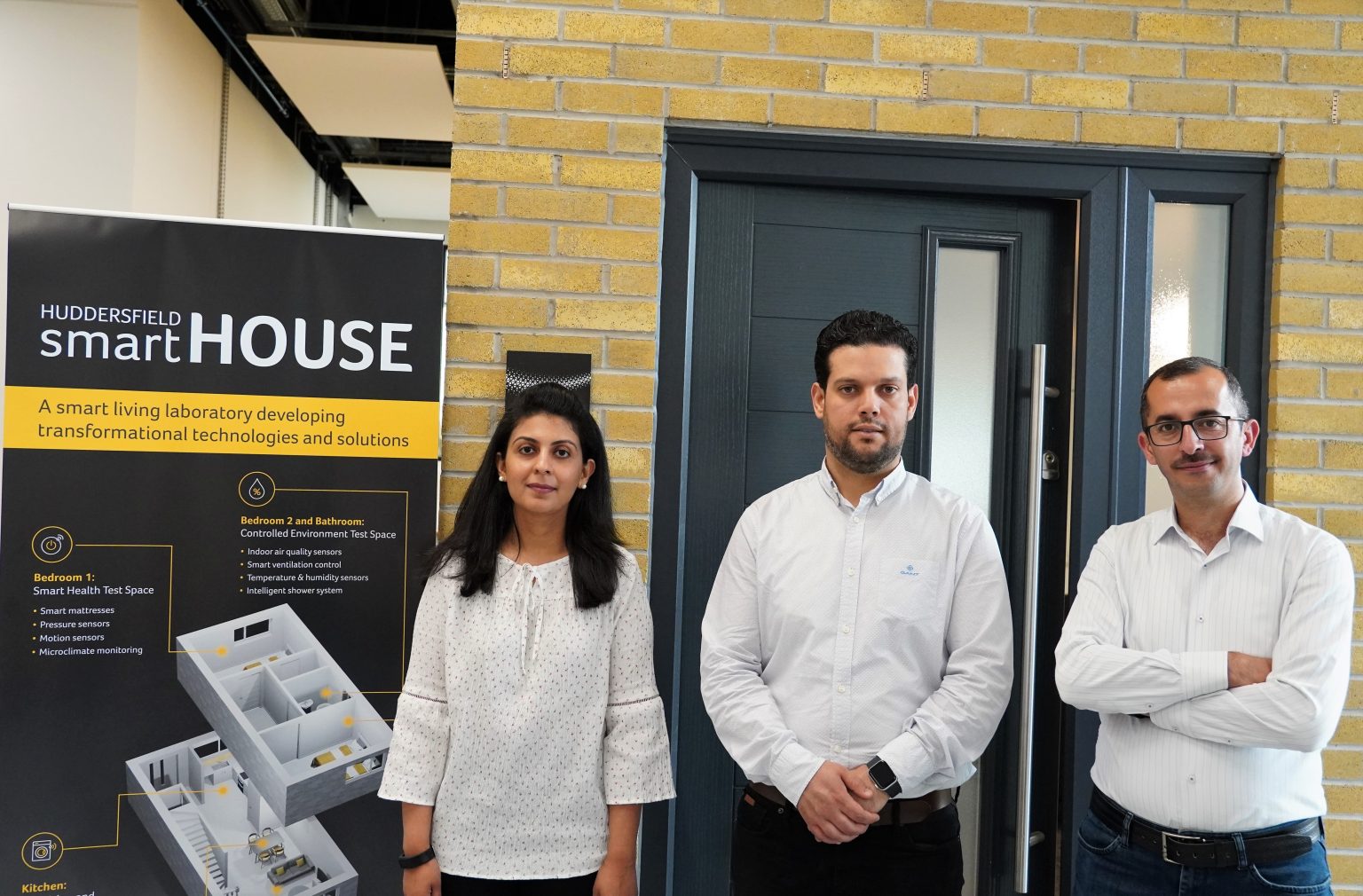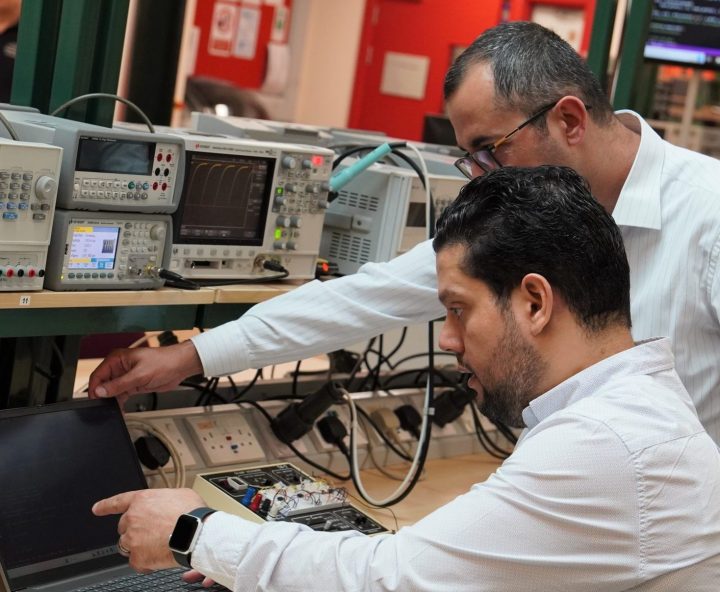Challenge
Bristol-based Aware Technologies (Awaretag) provides smart solutions for “healthier and more energy efficient homes”, specifically helping to protect landlords and tenants from mould and damp.
With self-install sensors, Aware’s AI provides insights about building use and quality, and how these can affect the risk of damp and mould, with metrics transformed into easy to interpret 3D animations and scores.
This AKT2I project aimed to expand Aware’s technology offering for application in Asthma prevention by integrating a SAMMS (SMART Asthma Monitoring and Management System. The partnership linked Aware with a specialist team at the University of Huddersfield’s School of Computing and Engineering, led by Dr Maryam Hafeez.
The key aims of the SAMMS were to 1) open a new revenue stream for Aware by integrating Asthma monitoring features in to their existing product; 2) help doctors and patients manage and improve Asthma care using Peak Expiratory Flow (PEF), digital diaries and AI based predictions; 3) make society more aware of Asthma symptoms and help early detection and better care at the patient’s own premises.
Asthma is a chronic respiratory disease affecting millions of people worldwide. While there is no cure for asthma, it can be managed effectively with the right treatment and care. One approach is to monitor and manage indoor air pollution which can exacerbate damp and mould growth which in turn can lead to asthma symptoms.
Maintaining optimal indoor air quality – affected by several factors including temperature, humidity and ventilation – can help reduce the risk of asthma attacks. Aware’s approach involves Asthma patients using personalised diaries – to record their perceptions of their environment – which also contain PFR (Peak Flow Rate) information, as well as predictive data around damp and mould growth, all of which could increase the likelihood of an Asthma attack.
In this context, a proposed asthma model would make correlations between all the related features, such as PFR readings, indoor temperature and humidity readings and individuals’ perceptions (mental wellbeing aspects) of their environment.
Outcome
Based on the needs identified by Aware from its experience in the social housing sector, the AKT2I fund was used to develop a novel machine learning-based mechanism that collects human and environment data and predicts the chances of Asthma attack without having to physically visit a doctor.
The subjective data on individuals’ perceptions of their environment was done through designing surveys or questionnaires requiring individuals to rate their comfort levels in relation to factors such as temperature and humidity.
Aware’s Home Hub, datasets and visualisation tools were instrumental in accurately determining the indoor environmental conditions; and Aware’s existing network of housing associations and charities were key in designing the survey for data collection.
All of this data has been used to develop SAMMS (SMART Asthma Monitoring and Management System) which studies the feasibility of using the daily peak expiratory flow (PEF) score of Asthmatic patients along with data about their housing conditions (heating and moisture leading to damp and mould) to predict worsening Asthma. SAMMS has developed and integrated Asthma monitoring and management capability into Aware’s existing home environment monitoring system.

Impact
The key innovation is combining a variety of significant factors to make an accurate prediction of Asthma attacks. The impact of subjective human perceptions (the mental wellbeing aspects) has not been factored into such predictions before.
This unique combination of data makes it possible to develop a more comprehensive understanding of the factors that contribute to asthma symptoms. This enables the development of personalised asthma management plans which take into account an individual’s unique environmental and lifestyle factors.
A major focus of the study was to predict the growth of damp and mould and study its correlation with worsening Asthma. Another important aspect of the proposed asthma model is the use of feedback on mental well-being. The information collected in the study used the Warwick Edinburgh Mental Wellbeing scale and incorporated this into the overall prediction system.
Aware also collected patient data including the indicators of Asthma related symptoms including wheezing, shortness of breath, and the use of rescue medication along with temperature and humidity values of patients’ homes over a long period of time.
Based on all these factors, Aware has developed a machine learning model that predicts the onset of an Asthma attack.
Depending on the specific classification provided by the ML model, risk of damp and mould growth is evaluated, and a patient’s asthma condition is categorised as either well-controlled, partially controlled, or poorly controlled. The model can also indicate the likelihood of an imminent Asthma attack.
New product features lead to company and job growth
Financially, accurate damp and mould prediction along with asthma monitoring and management features should secure business for Aware Technologies from multiple Councils across the UK. For potential investors, Aware Technologies will be able to showcase new features helping attract funding to grow its team with another 5 full-time employees.
The outcome of this project is Aware’s enhanced home hub, able to monitor and manage Asthma patients which is a new capability.
In summary, this partnership has facilitated a significant advancement in both innovation and business continuation domains. The partners are already looking for opportunities to extend this collaboration.
What they say
“We have built a model of thermal and moisture performance that can be applied in any home whilst people are living there and predict Asthma attacks. This is a big boost for the social housing sector that needs better information for decarbonisation and managing risks of mould/damp and Asthma”.
Further information
For more information about this project, contact Dr. Maryam Hafeez, email: m.hafeez@hud.ac.uk







